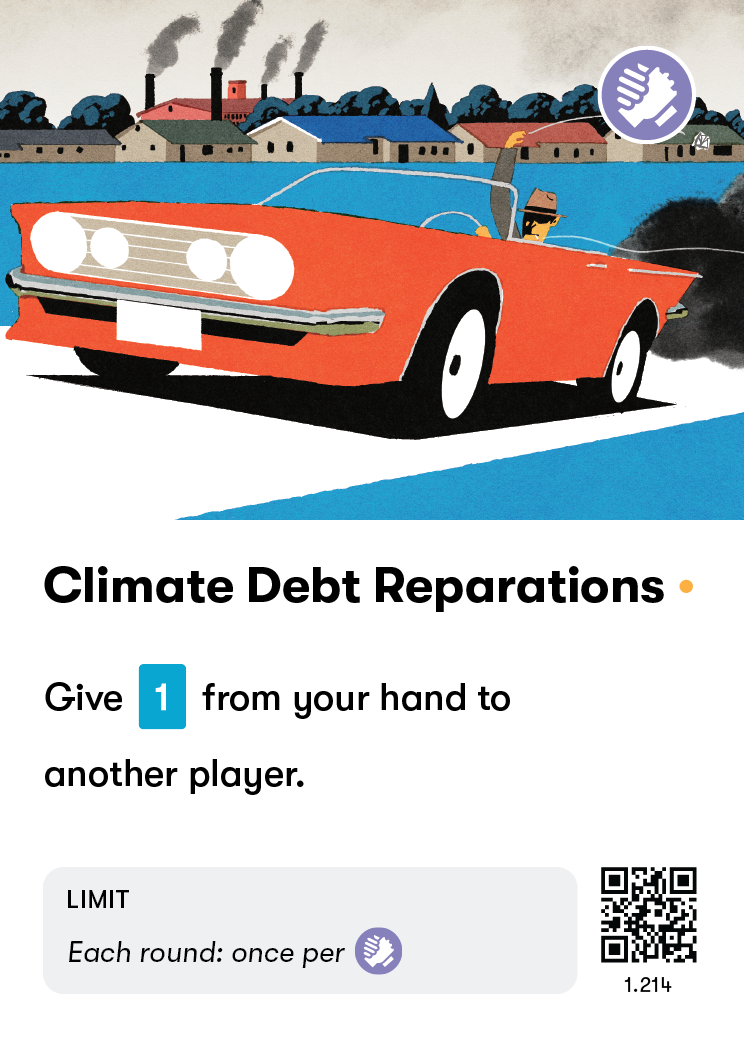Climate Debt Reparations
Local Project
Climate debt reparations require the United States to send funds and technologies to other countries. These are usually nations that suffer the most from the climate emergency despite their relatively small greenhouse gas emissions. The United States has, over the last centuries, had the highest average greenhouse gas emissions per person, and the highest total amount of greenhouse gas emissions overall.
These greenhouse gas emissions came from the US using its ability to buy and burn fossil fuels to supercharge its economy and help make it the wealthiest nation in the world. This has often come at the expense of less wealthy countries in the majority world, from whom the US has exploited for cheap labor and goods for decades.
But the climate emergency is a global problem, and the harm caused by the US emitting these greenhouse gasses is being felt around the world. And, given the climate emergency, other nations do not have the luxury of being able to produce endless amounts of greenhouse gasses to bolster their economies and lift them out of poverty. It is, therefore, reasonable to expect the US to share with the world some of the wealth it gained in part by being allowed to emit greenhouse gasses with few consequences. The US will also be affected by other countries not decarbonising since the climate emergency is a global problem: all countries must do everything they can.
Climate reparations can be organized in different ways. Open borders for climate migrants are an essential part of a reparative approach to climate justice. Climate litigation (holding companies and nations legally accountable for climate devastation, ideally with compensation for affected communities) is also important. ‘Loss and Damage’ funds compensate nations for historic or ongoing damages. Some climate finance transferred internationally is intended to go straight to climate adaptation and mitigation activities.
Many countries do not want to contribute to climate reparation payments. International coordination and legally binding agreements are required to ensure this vital approach is accelerated.
When you take this action, give 1 card from your hand to another player to add to their hand.
You may take this action once per Society tag in this card's stack each round.
In the Solo game, discard this card and draw a replacement.

Debt Justice for Climate Reparations (Climate and Community Project)
The Case for Climate Reparations (It’s Freezing in LA!)
$209bn a year is what fossil fuel firms owe in climate Reparations. We want that paid (The Guardian)
Vote for candidates who support climate reparations.
Participate in protests and other public actions that support the demand for climate reparations.



